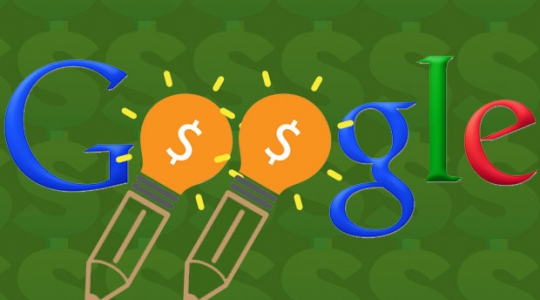Internet giant buys 28% of the patents offered during its patent-purchase experiment
Google’s Patent Purchase Promotion, which the company says received “thousands” of submissions during a three-week window, may prompt similar experiments in keeping patents out of the hands of what it considers the bad guys of intellectual property.
The experimental program was an attempt to intercept patents that individual inventors, operating companies, and others may have otherwise sold to organizations that don’t make products but rather use the patents to extract license fees from operating companies, which do. Such organizations are commonly called nonpracticing entities, patent assertion entities, or (less politely) patent trolls. The program offered a chance for anybody to sell patents to Google at a price set by the patent holder. Google wound up buying 28 percent of the offered patents that it deemed relevant to its business, according to Kurt Brasch, the company’s senior product licensing manager.
Even if the number of patents was only a few thousand, it’s an impressive result given that applicants could submit only one patent at a time rather than entire portfolios, says Matt Moyers, senior director at Black Stone IP, an investment bank. The prices Google disclosed also seem in line with today’s market values, he notes. The median price—excluding those offered at US $1 billion or more—of all submissions was $150,000, and Google paid prices ranging from $3,000 to $250,000.
That’s probably low, however, compared with what the company might have paid just a few years ago. Prices for software patents have fallen dramatically since the U.S. Supreme Court’s decision last year in Alice Corp. v. CLS Bank International, which raised the bar on software patentability.
“Since then courts have been killing off software patents at a pretty high rate, which has been driving down the value of software patents in general,” says Matthew Ellsworth, partner and patent attorney at Sheridan Ross, based in Broomfield, Colo. He estimates that a patent portfolio worth $2 million to $3 million three years ago might be worth less than $100,000 today.
If Google had allowed more time, it would have likely received many more submissions. Some potential sellers either didn’t see the notice or couldn’t react in time. Ellsworth says some of his clients were interested in submitting patents, but “they couldn’t wrap their heads around it fast enough and decided to let the opportunity pass rather than make an uninformed decision.”
Even though Google received “a number of questions asking if we could extend the program,” it stuck with its original schedule in the interests of fairness, says Brasch. He says the company has not yet decided if it will run the program again.
Google was surprised by the participation of individual inventors—who made up 25 percent of submissions—and by brokers, which submitted about half of the patents owned by operating companies. Those results showed that “the friction in the market is a barrier to both buyers and sellers,” says Brasch.
Individual inventors especially appreciated the speed of the transaction, Brasch says. Google took just a few weeks to decide whether to buy the patents, but most buyers usually take their time evaluating a patent, which enables trolls to swoop in and make a tempting offer to inventors who are cooling their heels.
Still, the majority of patents sold to trolls come from operating companies, Google’s prime target with this program. Operating companies made 75 percent of the submissions, and Google received many inquiries from them about the progress and success of the program, Brasch says. “Clearly, there was interest in what we learned,” he says. “This is something that the industry could learn from. It opened a dialogue with other operating companies that I think will provide some benefits down the road.”
The submissions from brokers were not necessarily all from operating companies. “I wouldn’t be surprised if some of those were actually nonpracticing entities or licensing agents,” says Moyers. In fact, a Google spokesperson confirmed that the company had indeed considered patents submitted through brokers by trolls, although Google would not specify whether it had purchased any.
The experiment nevertheless seemed to pique interest in ways to improve the patent marketplace. “If Google prompts a trend where many operating companies are going to do something similar, it starts to create a real and true marketplace for patents,” says Moyers. “And that is what the industry desperately needs right now.”
Source: spectrum.ieee.org











